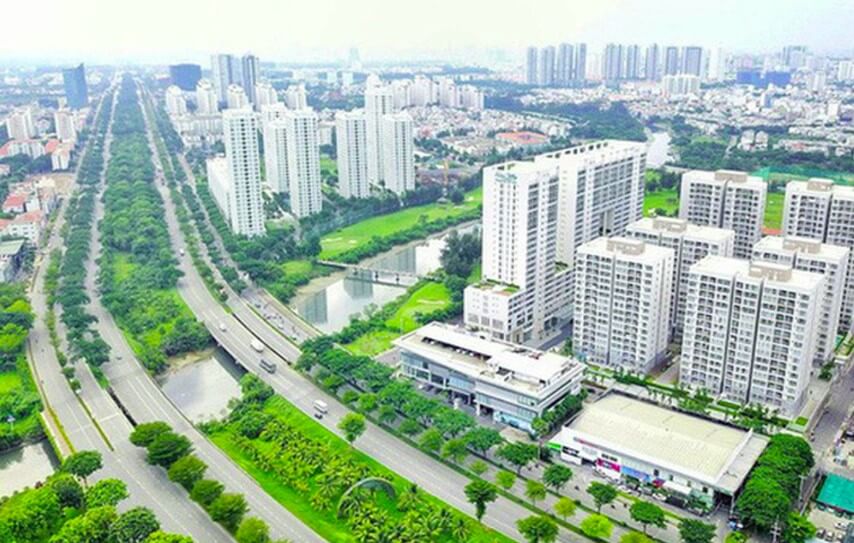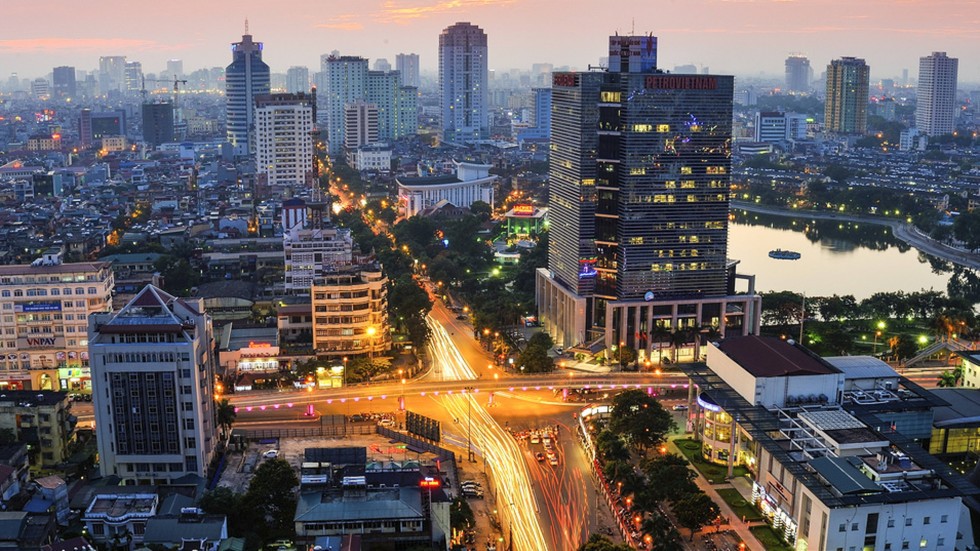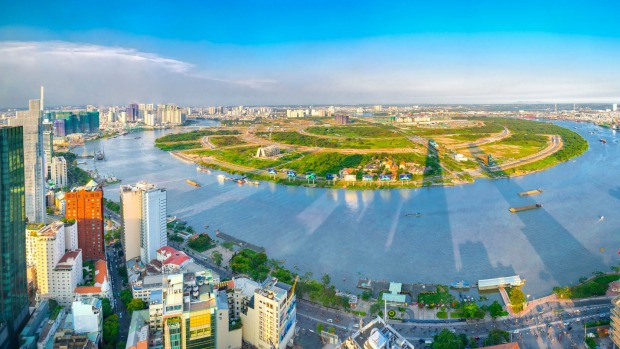Compensation for land, support and resettlement in Vietnam

Vietnam land law has regulations on compensation for land, support and resettlement. Let’s find out this issue with Lawyer X through the following situation: “Dear Lawyer! What are principles of compensation upon land expropriation by the State in Vietnam? What are conditions for receiving compensation? Thanks for answering me!”
Legal grounds
- 2013 Vietnam Land law
Principles of compensation upon land expropriation by the State
– Land users who meet the conditions prescribed in Article 75 of Land law upon land expropriation by the State shall be compensated.
– The compensation must be made in the form of allocating new land with the same land use purpose with the expropriated land. If there is no land available for compensation, the land users shall receive compensation in money calculated according to the specific land price of the type of expropriated land which is decided by the provincial-level People’s Committee at the time of the recovery decision.
– The compensation upon land expropriation by the State must be made in a democratic, impartial, equal, public, timely and lawful manner.
Conditions for receiving compensation when the State expropriates land for national defense or security purpose; for socio-economic development in the national or public interest
– Households and individuals using land which is not leased land with annual rental payment, having a certificate of land use rights, a certificate of ownership of houses and residential land use rights, or a certificate of land use rights and ownership of houses and other land-attached assets (below referred to as the certificat+, or being eligible to be granted a certificate under Land law but not being granted that certificate yet, except the cases prescribed in Clause 2, Article 77 of Land law. Overseas Vietnamese who are eligible to own houses associated with land use rights in Vietnam and are granted a certificate of land use rights and ownership of houses and residential land use rights and other land-attached assets, or being eligible to be granted such certificate under Land law but not being granted that certificate yet.
– Communities and religious institutions using land which is not allocated or leased land by the State and having a certificate, or being eligible to be granted a certificate of land use rights and ownership of houses and other land-attached assets under Land law but not being granted that certificate yet.
– Overseas Vietnamese who are allocated land with land use levy by the State, or are leased land with full one-off rental payment for the entire lease period, or are transferred land use rights in industrial parks, industrial clusters, export processing zones, hi-tech zones or economic zones, having a certificate or being eligible to be granted a certificate of land use rights and ownership of houses and other land-attached assets under Land law but not being granted that certificate yet.
– Organizations that are allocated land with land use levy by the State, or are leased land with full one-off rental payment for the entire lease period, or receive inherited land use rights, or are transferred land use rights for which the land use levy has been paid or the amount paid for the transfer does not originate from the state budget, having a certificate or being eligible to be granted a certificate of land use rights and ownership of houses and other land-attached assets under Land law but not being granted that certificate yet.
– Foreign organizations with diplomatic functions that are leased land by the State with full one-off rental payment for the entire lease period and having a certificate or being eligible to be granted a certificate of land use rights and ownership of houses and other land-attached assets under Land law but not being granted that certificate yet.
– Economic organizations, overseas Vietnamese and foreign-invested enterprises that are allocated by the State land with land use levy to implement investment projects for construction of houses for sale or for a combination of sale and rent, or are leased land with full one-off rental payment for the entire lease period, having a certificate or being eligible to be granted a certificate of land use rights and ownership of houses and other land-attached assets under Land law but not being granted that certificate yet.

Compensation for remaining investment costs on land when the State expropriates land for national defense or security purpose; or for socio-economic development in the national or public interest
– Cases that are not eligible for compensation for land but are eligible for compensation for the remaining investment costs on land when the State recovers the land include:
+ Land which is allocated by the State without land use levy, except the cases in which agricultural land is allocated to households and individuals as prescribed in Clause 1, Article 54 of Land law;
+ Land which is allocated with land use levy by the State to organizations but those organizations are exempted from land use levy;
+ Land which is leased by the State with annual rental payment or leased land with full one- off rental payment for the entire lease period but the land rental is exempted, for cases in which households and individuals use land under the policies for people with meritorious services to the revolution;
+ Agricultural land belonging to the public land fund of the communes, wards or townships;
+ Contracted land for agriculture, forestry, aquaculture or salt production.
– The Government shall detail this Article.
Compensation for land and remaining investment costs on land when the State recovers agricultural land from households and individuals
– Households and individuals using agricultural land when the State expropriates land are eligible to receive compensation for land and remaining investment costs on land in accordance with the following provisions:
+ Agricultural land area to be compensated includes the area within the quotas as prescribed in Articles 129 and 130 of Land law and the area received in the form of inheritance;
+ Agricultural land area exceeding the quota specified in Article 129 of Land law is ineligible for compensation for land but is eligible for the remaining investment costs on land;
+ For agricultural land area exceeding the quota prior to the effective date of Land law, the compensation and support must comply with the Government’s regulations.
– For agricultural land which was used before July 1,2004, of which land users are households and individuals directly engaged in agricultural production but have not been granted a certificate or not being eligible to be granted a certificate of land use rights and ownership of houses and other land-attached assets under Land law, the compensation must be made for the land area which is actually used and does not exceed the agricultural land allocation quota prescribed in Article 129 of Land law.
Compensation for land and remaining investment costs on land when the State recovers agricultural land from economic organizations, self-financed public non-business organizations, communities or religious institutions
– For economic organizations that are using allocated agricultural land with land use levy or leased land with full one-off rental payment for the entire lease period, or are transferred land use rights, if they are eligible for compensation as prescribed in Article 75 of Land law when the State recovers the land, they shall be compensated for land for the remaining land use term.
– Economic organizations, self-financed public non-business organizations that are using allocated agricultural land with annual rental payment, shall, upon land expropriation by the State, not be compensated for land but for the remaining investment costs on land if the costs do not originate from the state budget.
If agricultural land is not land for special-use forest, protection forest or production forest which is natural forest and has been contracted by economic organizations to households and individuals in accordance with law, upon land expropriation by the State, die households and individuals acquiring the contracted land shall not be compensated for land but for the remaining investment costs on land.
– Communities and religious institutions that are using agricultural land and eligible for compensation as prescribed in Article 75 of Land law, shall, upon land expropriation by the State, be compensated for land in accordance with the Government’s regulations.
Compensation for land when the State recovers residential land
– Households and individuals using residential land and overseas Vietnam owning houses associated with land use rights in Vietnam, who are eligible for compensation as prescribed in Article 75 of the Law upon land expropriation by the State, shall be compensated as follows:
+ If they have no other residential land or houses in the communes, wards or townships in which the expropriated land is located, they shall be compensated with residential land or house. If they have no need for compensation with residential land or house, the State shall compensate them in money;
+ If they have other residential land or houses in the communes, wards or townships in which the expropriated land is located, they shall be compensated in money. For localities with available land fund, the compensation in the form of land may be considered.
– For households and individuals that are required to move upon the State’s recovery of land and land-attached houses, if they are ineligible for compensation with residential land and have no other living place, the State shall offer houses for them to buy or lease-purchase, or allocate them residential land with land use levy.
– Economic organization, overseas Vietnamese and foreign-invested enterprises that are using land for housing projects and are eligible for compensation as prescribed in Article 75 of Land law, shall be compensated for land upon land expropriation by the State.
– The Government shall detail this Article.
Compensation for land and remaining investment costs on land when the State recovers non-agricultural land which is not residential land of households and individuals
– For households and individuals using non-agricultural land which is not residential land, when the State expropriates land, if they are eligible for compensation as prescribed in Article 75 of Land law, they shall be compensated with land having the same land use purpose. In case such land is not available for compensation, they shall be compensated with money calculated based on the remaining land use term.
– For households and individuals using non-agricultural land which is not residential land and is leased by the State with annual rental payment or with full one-off rental payment for the entire lease period but being exempted from land rental, when the State expropriates land, they shall not be compensated for land but for the remaining investment costs in land, except the cases in which households and individuals use land under the policies for people with meritorious services to the revolution.
– The Government shall detail this Article.
Compensation for land and remaining investment costs on land when the State recovers non-agricultural land which is not residential land from economic organizations, self-financed public non-business organization, communities, religious institutions, overseas Vietnamese, foreign organizations with diplomatic functions, and foreign-invested enterprises
– For economic organizations and overseas Vietnamese using non-agricultural land which is not residential land or land of cemeteries or graveyards, when the State expropriates land, if they are eligible for compensation as prescribed in Article 75 of Land law, they shall be compensated with land having the same land use purpose. In case that land is not available for compensation, they shall be compensated with money calculated based on the remaining land use term.
– Economic organizations using land allocated for construction of cemeteries or graveyards as prescribed in Clause 4, Article 55 of Land law, or joint ventures using non-agricultural land that is not residential land as a result of receipt of land use rights contributed as capital as prescribed in Article 184 of Land law, shall be compensated for land according to the Government’s regulations when the State recovers the land.
– For economic organizations, self-financed public non-business organization, overseas Vietnamese, foreign organizations with diplomatic functions, and foreign-invested enterprises using non-agricultural land which is leased with full one-off rental payment for the entire lease period, if they are eligible for compensation as prescribed in Article 75 of Land law when the State expropriates land, they shall be compensated for land according to the remaining land use term.
– Economic organizations, self-financed public non-business organization, overseas Vietnamese, foreign organizations with diplomatic functions, and foreign-invested enterprises using non-agricultural land which is leased by the State with annual rental payment shall be compensated for the remaining investment costs on land upon land expropriation by the State.
– For communities and religious institutions using non-agricultural land, if they are eligible for compensation as prescribed in Article 75 of Land law when the State expropriates land, they shall be compensated for land in accordance with the Government’s regulations.
Cases in which compensation for land is not made upon land expropriation by the State
The State shall recover land without compensation for land in the following cases:
– The cases specified in Clause 1, Article 76 of Land law;
– Land which is allocated by the State for management;
– Land which is expropriated as prescribed in Article 64 and at Points a, b, c and d, Clause 1, Article 65 of Land law;
– Cases that are not eligible for a certificate of land use rights and ownership of houses and other land-attached assets in accordance with Land law, except the cases prescribed in Clause 2, Article 77 of Land law.
– Principles of support upon land expropriation by the State:
+ Upon land expropriation by the State, in addition to receiving compensation in accordance with Land law, land users shall also be considered for receiving support from the State;
+ The support must ensure impartiality, equality, publicity, timeliness and lawfulness.
– The support upon land expropriation by the State includes:
+ Support for stabilizing livelihood and production;
+ Support for training, occupation change and job seeking for cases of recovery of agricultural land from households and individuals directly engaged in agricultural production, or of recovery of land which is a combination between residential land and land for trading and services of households and individuals that have to be relocated;
+ Support for resettlement in case of recovery of land from households, individuals and overseas Vietnamese who have to be relocated;
+ Other support.
– The Government shall detail this Article.
Support for vocational training, occupation change and job seeking for households and individuals upon land expropriation by the State
– For households and individuals directly engaged in agricultural production, when the State recovers agricultural land and there is no agricultural land available for compensation, in addition to receiving compensation in money, they are entitled to support for vocational training, occupation change and job seeking.
In case the people who are entitled to support for vocational training, occupation change or job seeking are of working age and have need for vocational training, they may be admitted to vocational training centers, receive counseling on job seeking and preferential loans to develop production and business.
– Households and individuals using residential land in combination with trading and services in which the main source of income derives from trading and services, and need to be relocated when the State expropriates land, are entitled to preferential loans to develop production and business. Those whose land is expropriated and who are of working age are entitled to support for vocational training, occupation change and job seeking.
– Based on the annual district-level land use plans, provincial- and district-level People’s Committees shall make and implement plans for vocational training, occupation change and job seeking for those whose expropriated land is agricultural land or residential land in combination with trading and services. Plans for vocational training, occupation change and job seeking shall be developed and approved concurrently with plans for compensation, support and resettlement.
During the process of making plans for vocational training, occupation change and job seeking, provincial- and district-level People’s Committees shall organize consultations with, and give explanation and assimilate opinions from, people whose land is expropriated.
Formulation and implementation of resettlement projects
– Provincial- and district-level People’s Committees shall develop and implement the resettlement projects before conducting the land expropriation.
– In the concentrated resettlement areas, infrastructure must be developed synchronously, ensuring construction standards and regulations and conformity with the conditions, customs and practices of each region and area.
– Land expropriation can only be conducted after the construction of houses and infrastructure in the resettlement area is completed.
– The Government shall detail this Article.
Resettlement arrangement for those whose land is expropriated and who need to be relocated
– The organization in charge of compensation and ground clearance which is assigned by the provincial- and district-level People’s Committees to arrange resettlement shall notify those whose land is expropriated and who need to be relocated of the tentative resettlement arrangement plan and post up the plan at the offices of the commune-level People’s Committee, at common public places of the residential areas of which land is expropriated and at resettlement areas for at least 15 days before competent state agencies approve the plan.
The contents of the notification include the location and area of resettlement land and resettlement houses, design and area of each land lot or apartment, prices of resettlement land and resettlement houses, and the tentative plan for resettlement arrangement for those whose land is expropriated.
– People whose land is expropriated shall be resettled in the same place if the resettlement projects are developed or conditions for resettlement arrangement exist in the expropriated area. Convenient locations are prioritized for those who hand over the expropriated land early or people with meritorious services to the revolution.
The approved plan for resettlement arrangement must be publicized at the office of the commune-level People’s Committee and at common public places of the residential areas of which land is expropriated.
– The specific land price used to calculate land use levy at resettlement areas and the sale price of resettlement houses shall be determined by the provincial-level People’s Committee.
– In case people having land expropriated are resettled while the amount of compensation and support is not enough to buy the minimum resettlement plot, the State shall make up the deficit.
The Government shall specify the minimum resettlement plot in conformity with specific conditions of each region, area and locality.
Compensation, support and resettlement for special cases
– For investment projects that are decided by the National Assembly or approved in principle by the Prime Minister and require relocation of all population in the community, affecting all the livelihood, socio-economic activities, and cultural traditions of the community, and for projects of which the expropriated land is located in several provinces and centrally run cities, the Prime Minister shall decide on the policy framework for compensation, support and resettlement.
– For projects using loans from international or foreign organizations for which Vietnam has committed to a policy framework for compensation, support and resettlement, that framework policy shall apply.
– For the cases prescribed at Points e and f, Clause 1, Article 65 of Land law, people whose land is expropriated are entitled to compensation, support and resettlement to stabilize their livelihood and production in accordance with the Government’s regulations.
Please see more:
- Instructions for exclusive registration of company logos in Vietnam
- Service of changing the legal representative of Vietnamese enterprises
Services of Lawyer X
Prestigious professional services: Firstly, the team of consultants and consultants for many years in the field of civil status, and customer support.
On-time: Certainly, with the motto “Get your lawyer right at your fingertips”, we ensure the service always performs on time. The rights and interests of customers always come first.
Cost: Besides, Lawyer X’s service costs are highly competitive; depending on the nature of the particular case. So, we want our guests to have the best possible service experience. Therefore, costs which guaranteed to be the most suitable and economical for customers.
Confidentiality of client information: Finally, all personal information of clients Lawyer X will be 100% confidential.
If you need any further information, please contact LSX Law firm: at +84846175333 or Email: [email protected]
Frequently asked questions
The compensation upon land expropriation by the State must be made in a democratic, impartial, equal, public, timely and lawful manner.
The compensation must be made in the form of allocating new land with the same land use purpose with the expropriated land. If there is no land available for compensation, the land users shall receive compensation in money calculated according to the specific land price of the type of expropriated land which is decided by the provincial-level People’s Committee at the time of the recovery decision.
For projects using loans from international or foreign organizations for which Vietnam has committed to a policy framework for compensation, support and resettlement, that framework policy shall apply.
Conclusion: So the above is Compensation for land, support and resettlement in Vietnam. Hopefully with this article can help you in life, please always follow and read our good articles on the website: lsxlawfirm.com




